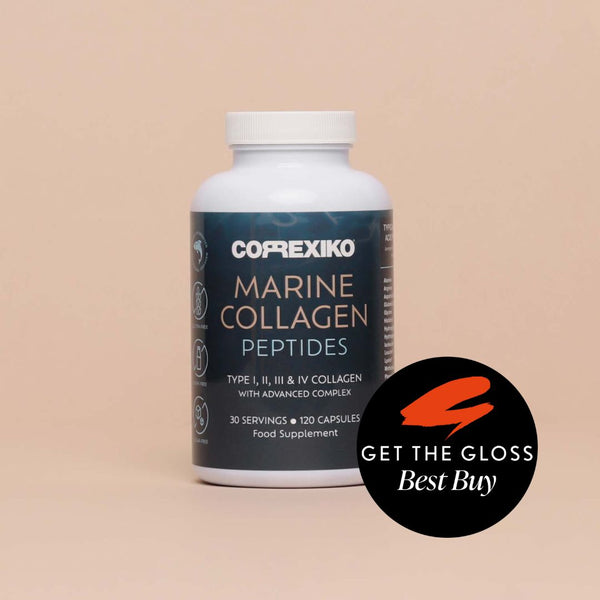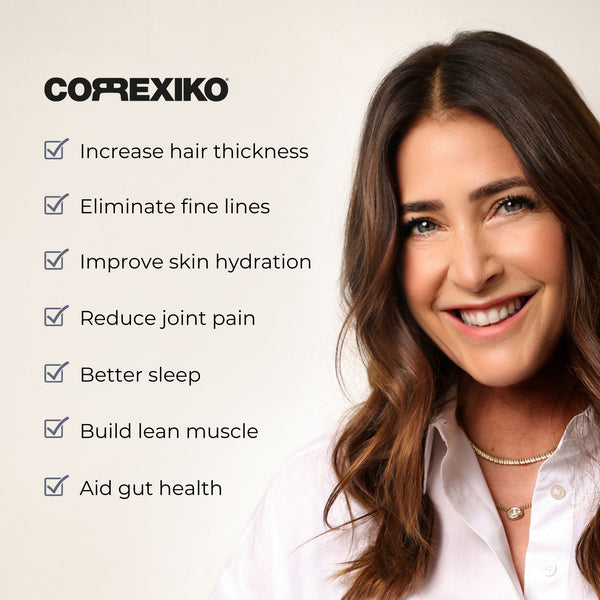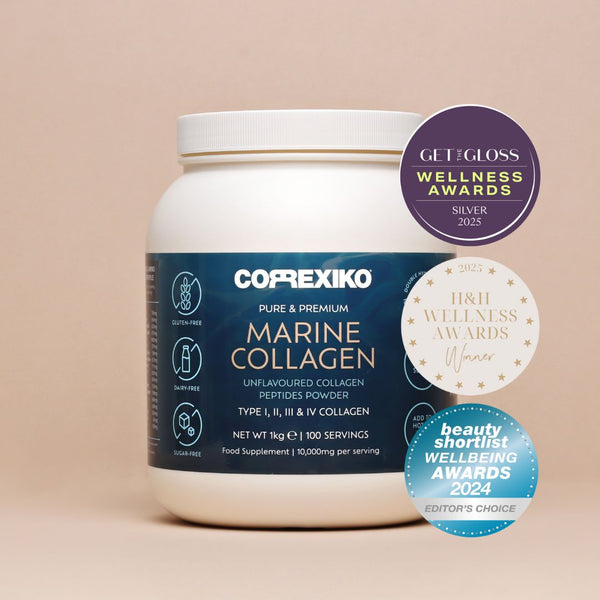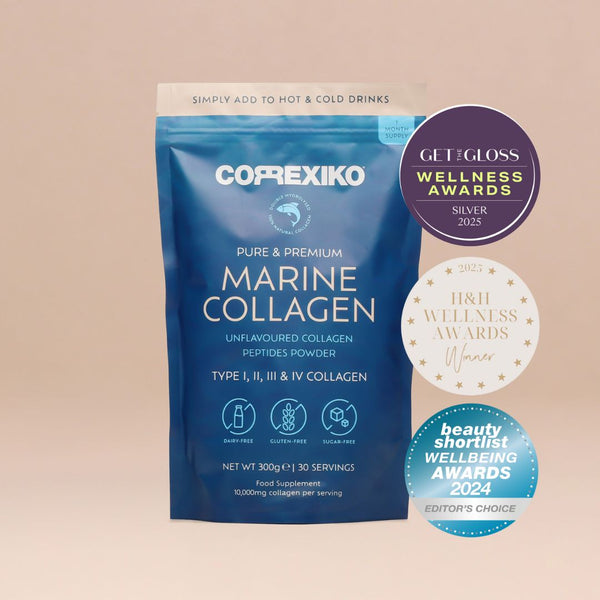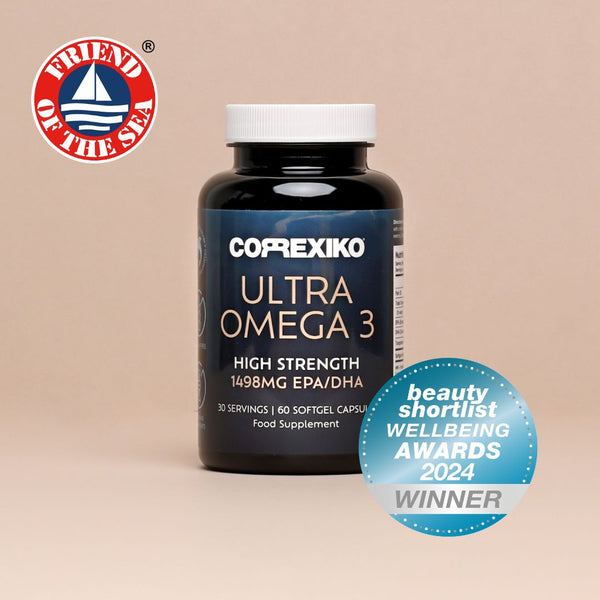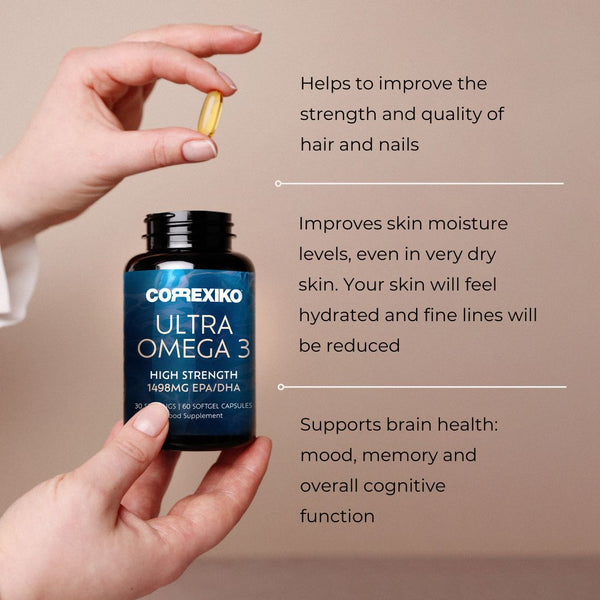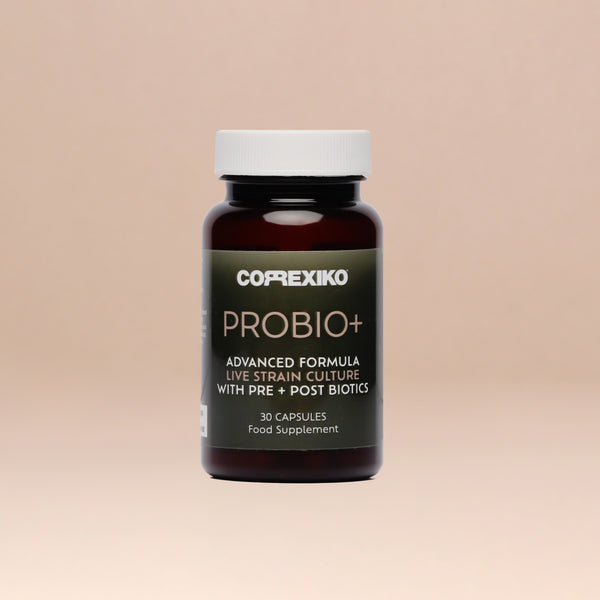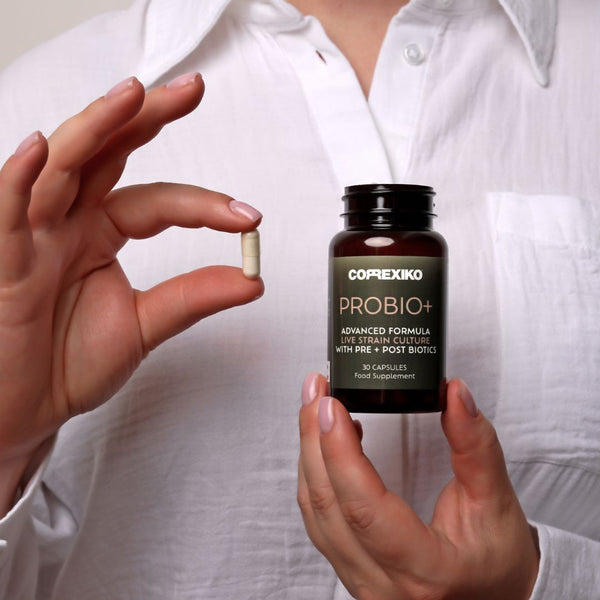
CONFIDENCE IN CORREXIKO
SCIENCE & RESEARCH
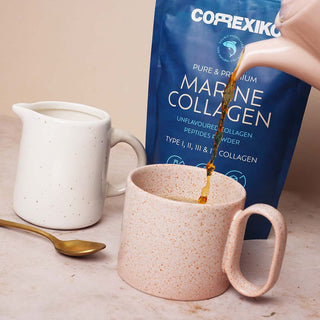

I first used collagen peptides in clinical practice as an NHS doctor over 30 years ago, we trialled it with my patients for wound healing post surgery and had very effective results.
Now there are specialist products with collagen peptides that have been developed for hospital patients and Juven® by Abbot laboratories is regularly prescribed for wound healing in the UK and USA healthcare services. There are also many other clinically proven benefits to collagen. Read on to find out more and links to each study.

FOUNDER | CORREXIKO
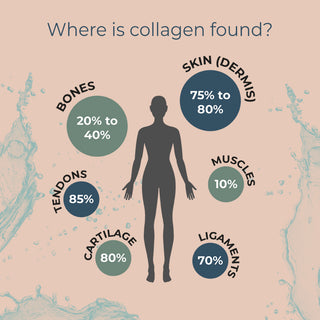
WHAT IS COLLAGEN?
Collagen is found throughout our bodies, it’s our most common protein. I’m constantly asked about where can we find collagen in the body, but a better question would be where isn’t collagen found, as it’s so prevalent in every part of us!
It’s found in our skin, hair, nails, joints, tendons, ligaments, bones, veins, arteries, heart, brain, liver, gut, almost every tissue in the body. We’re born with high amounts of collagen, which is why babies have such plump smooth skin, but as we age our body collagen levels naturally fall steadily every year. This is accelerated by menopause, with women having around 30% less collagen post menopause than at the start of menopause.
External factors like stress, dieting, exercise, smoking, alcohol, pollution can also cause collagen levels to further fall.

HOW DOES INGESTIBLE COLLAGEN WORK?
Collagen peptides can reverse or slow down the body's natural falling levels, by stimulating the production of new collagen throughout the body. Fibroblasts are the body's collagen producing cells, and collagen peptides stimulate fibroblast, and are the raw material for fibroblasts to produce new collagen.
Not many people know this, fibroblasts also produce Elastin (which makes skin stretchy) and hyaluronic acid (which holds water and makes skin plump and hydrated). So collagen peptides have a 3 x benefit - produce new collagen, elastin and hyaluronic acid.
Since collagen is found everywhere in the body, there has been a lot of research into how collagen peptides can be utilised to improve health and wellbeing. The following clinical studies are from PubMed, it’s the leading source of scientific studies for peer reviewed clinical trials. Please click on the links below to explore further.
Learn more about collagen in clinical studies
Look who’s been taking and loving our collagen!
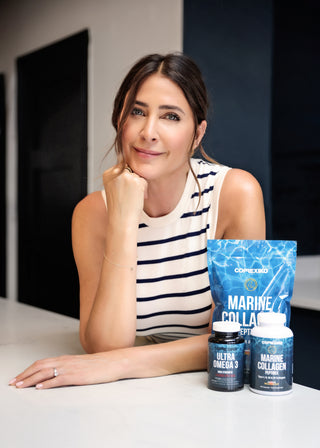
LISA SNOWDON
TV Personality, model and Correxiko Brand Ambassador

ABBEY CLANCY
Victoria's Secret Model, mum to 4 and TV Personality

JENNY POWELL
TV Personality, advocate for women's health

SARAH LINDSAY
Olympic Athlete, TV Personality, Entrepreneur & Coach
Our best sellers

References:
1. Microbiome Diversity: Claesson, M. J. et al. (2012). Gut microbiota composition correlates with diet and health in the elderly. Nature, 488(7410), 178–184. - This study shows that elderly people with diverse microbiomes tend to be healthier.
2. Inflammation: Vaiserman, A. M., Koliada, A. K., & Marotta, F. (2017). Gut microbiota: A player in aging and a target for anti-aging intervention. Ageing Research Reviews, 35, 36–45. - This review discusses how gut dysbiosis can contribute to inflammation and ageing.
3. Nutrient Absorption: O'Toole, P. W., & Jeffery, I. B. (2015). Gut microbiota and aging. Science, 350(6265), 1214–1215. - This provides an overview of how gut microbiota can influence nutrient absorption, especially in the elderly.
4. Immune System Function: Belkaid, Y., & Hand, T. W. (2014). Role of the microbiota in immunity and inflammation. Cell, 157(1), 121–141. - The study outlines the intimate relationship between the gut microbiota and the immune system.
5. Brain Health: Cryan, J. F., & Dinan, T. G. (2012). Mind-altering microorganisms: the impact of the gut microbiota on brain and behaviour. Nature Reviews Neuroscience, 13(10), 701–712. - This review elaborates on the connection between the gut microbiome and brain health.
6. Metabolism and Weight Management: Turnbaugh, P. J., et al. (2006). An obesity-associated gut microbiome with increased capacity for energy harvest. Nature, 444(7122), 1027–1031. - This study demonstrates how the gut microbiome can influence obesity by altering energy harvest from the diet.
7. Cellular Ageing: Mailing, L. J., Allen, J. M., Buford, T. W., Fields, C. J., & Woods, J. A. (2019). Exercise and the Gut Microbiome: A Review of the Evidence, Potential Mechanisms, and Implications for Human Health. Exercise and Sport Sciences Reviews, 47(2), 75–85. - This review touches upon the potential impact of the gut microbiome on telomere length and cellular ageing.

